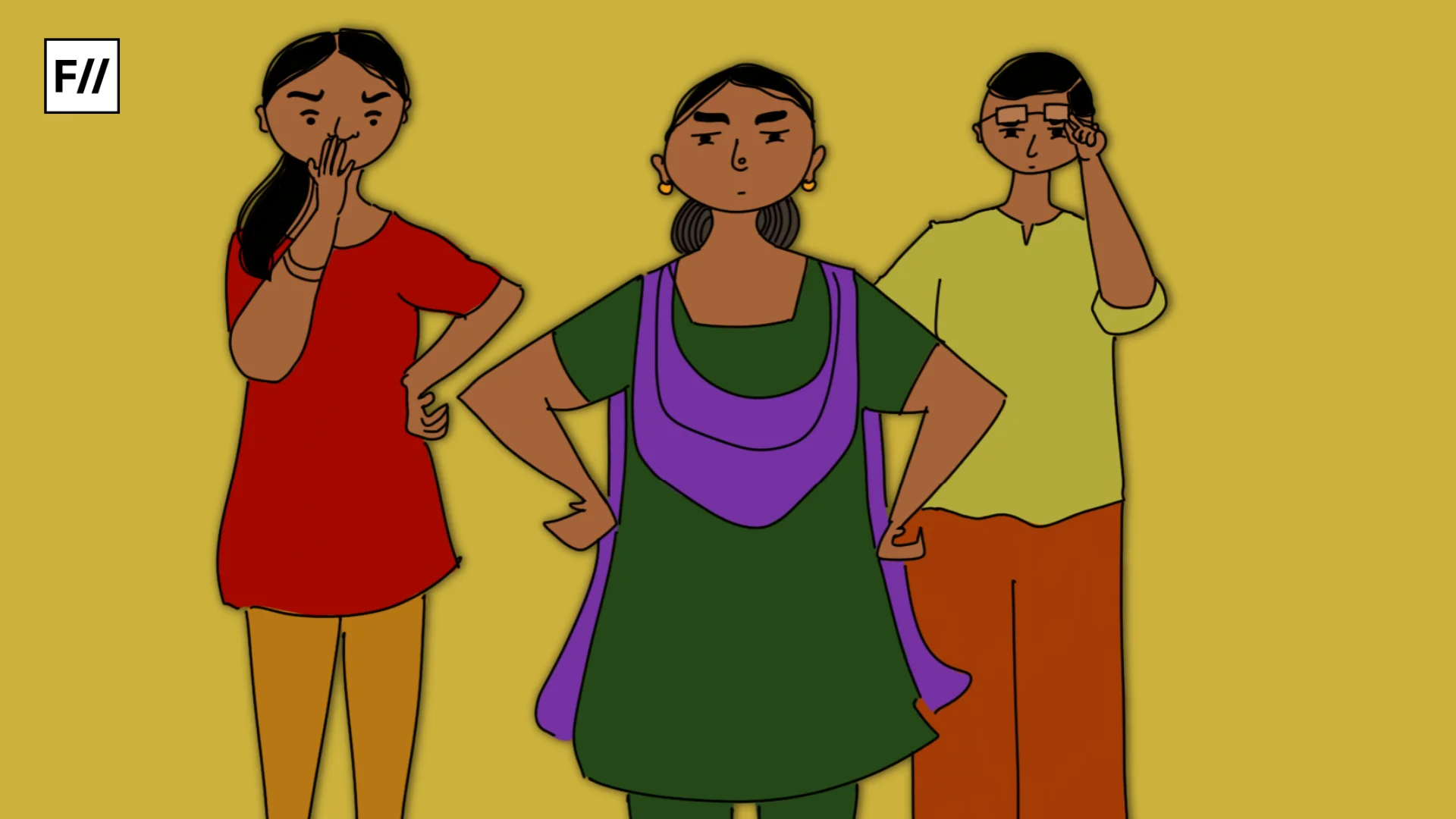Editor’s Note: This month, that is August 2019, FII’s #MoodOfTheMonth is Travel, where we invite various articles narrating bitter-sweet travel experiences. If you’d like to share your story, email us at pragya@feminisminindia.com.
Men explain things to me, and I listened. Maybe there was something inherently wrong with me considering a map on a railway station that one of them had to come mansplain the entire route to me. Or maybe when my female friend was unpacking in the mixed dorm we stayed at, she must have looked so unaware that a man staring at her for long enough ‘suggested’ how and where to keep her bags. We are women, how would we know that the Piccolo we ordered, will be bitter? Of course, we need a man to explain things to us.
My male friends know that we, in the ‘feminazi’ community have a word for it now―mansplaining. So when I talk about being talked over by a man, they are the first ones to point out I was being mansplained and begin mansplaining me on how not to tolerate it in future. So nice, hai na? Equally nice was the male stranger who told me the Pad Thai I wanted to have had a tinge of sweet, “you might not like it,” he said. I listened, I diligently listened to all of them. I have been conditioned to hear the god-like voice of men and believe in it without fact-check.
When I started travelling alone, I was happy to have left behind the patriarch of my house. My father who makes it his business to know my whereabouts didn’t know about all the night walks, the wandering, the fun I was indulging in. There was nobody to tell me “vahaan mat jaa” (don’t go there), “ye mat kar” (don’t do this). Travelling alone meant gauging my fear and trying to reclaim myself from the label of meekness my benevolently patriarchal family dressed me in. On one hand, I was recreating myself; on the other, I was being constantly belittled for trying to figure things out on my own.
I listened, I diligently listened to all of them. I have been conditioned to hear the god-like voice of men and believe in it without fact-check.
Recently, I took a train. With heavy looking bags, when I managed my way out to find an exit, I heard somebody shout “excuse me”. I looked back and there he was, my saviour. He said he’d been looking at me trying to find a way out and was bedazzled by my delay in finding an exit out of the railway station. “Main le chalta hu, raasta vahaan hai” (I’ll take you, the road’s that way). Surprised at his confidence, I wiped my sweat and told him I’ll manage. “Par bag bhaari hai” (but the bag’s heavy), he said. Hearing this, I swear I should’ve fallen at his feet but being the feminist type that I am, I sternly said, “maine kaha na, nahi chahiye help” (I told you, I don’t need help). “Zyada smart samajhti hai khudko” (she thinks she’s so smart), he left saying.
For those of you thinking these are kind-hearted, “farishtey aadmi (angelic men)”, who have come to just help me, trust me I used to be as innocent as you until I began travelling alone or with fellow women. Then that slight grab, long stare, mistaken push started feeling familiar. As if moving in public places with my body scrunched, eyes doing a 360 degree analysis of my surroundings wasn’t enough, I now also have to listen to male commands thrown in like casual wisdom without which my survival chances would thin down.
Rebecca Solnit’s scrutiny of everyday gendered conversations resulted in the term ‘mansplaining’ and since then, mansplaining has been defined as a systematic, institutionalized form of silencing women. In her essay, Men Explain Things To Me, Solnit explains how mansplaining “crushes young women into silence by indicating the way harassment on the street does, that this is not their world.” This sits hard when you travel as a woman―when even navigating public spaces is a maidan-e-jung for some of us, we are told in seemingly benign ways that we do not belong.
Do you remember Ranbir Kapoor mansplaining Katrina Kaif during Jagga Jasoos promotions? Despite the cringe worthy efforts Kapoor made to explain his actions, the internet didn’t allow him to get away with it. Katrina Kaif recognised it and answered back. But what about the routinized forms of mansplaining that are explained away as ‘genuine help’ but are consistent efforts to tell women that we do not know, that no matter how much knowledge we have, it will be lesser? Mansplaining is so seated in our everyday lives that it sometimes becomes difficult to even mark it as an experience of being shut down.
With mansplaining comes infantilisation. When the “well-meaning” man explained the entire railway route to me, I looked at him and said, “Did I ask you?”, he apologized and immediately went, “But I thought you wouldn’t know”. Why do you think I wouldn’t know? Because the treatment and usage of the ‘feminine’ is to reiterate non-knowledge and to simultaneously establish male speech and even interruptions as the norm.
As if moving in public places with my body scrunched, eyes doing a 360 degree analysis of my surroundings wasn’t enough, I now also have to listen to male commands thrown in like casual wisdom without which my survival chances would thin down.
I was loitering with my female friend one evening. We took a break and sat down to chat but were interrupted by a man whose first words were, “Hi, I’ve been looking at you. You look cute so I had to come to talk to you”. As much as it was a complete violation of our private space, it was also a disregard to us accessing the public space. So many times I have been asked questions, stared at, talked to because I was either alone or with a female friend. That rarely happens when there is a man with me.
Also read: Mansplaining 101: Why Do Men Explain Things To Women?
This is not to suggest we need male protectors to help us move around in public but to drive home the lack of respect our society has for women who loiter in public. We are not treated as whole beings if we come out on our own. Although mansplaining is common with women, I also realise I come with my set of privileges that do not keep me in the public at all times. For women who have to be in public at all times, these problems are graver.
I spend a lot of time thinking of responses that will shut my mansplainers. While that is easy in some familiar settings, I find it difficult to respond when I am travelling alone because what if the man doesn’t take it well. What if my non-response or denial of help angers them? With these negotiations, I learn about not only the structural problem of patriarchy kept in place through mansplaining, but also about my conditioning that has always told me to listen to men but never respond, to be interrupted but dare not interrupt.
Also read: How Nathicharami Tries To Explain Female Sexuality Through Mansplaining
As much as I want to say things have changed, and that I am now better equipped to handle situations like these, I just want to say I am still taken aback when I am being shut down or talked to about something I know/can know in a patronizing way. All I do is try to keep my voice there, somewhere because I cannot afford to let it go.
References
- Mansplaining: The Systematic Sociocultural Silencer by Anna Grace Kidd
- Men Explain Things To Me by Rebecca Solnit
Featured Image Source: Khaleej Times
About the author(s)
Pursuing master's in Gender, Culture and Development, she is a hoarder of stationery and stories and likes to believe she has that one story to tell that is her own. When she isn't searching for good coffee or reading about feminism and gender, she likes to binge on sleeping.




